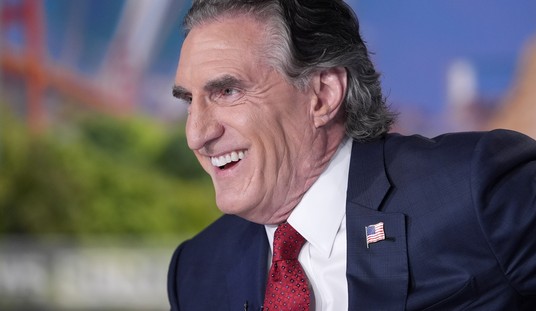General Electric is apparently not going to move to Texas because Congressman Jeb Hensarling doesn’t support the Export-Import Bank. Bloomberg cited the ever nebulous “people familiar with the matter” in their report on Friday.
GE told Dallas business leaders in recent days it would look elsewhere for alternatives to its Connecticut home, said the people, who asked not to be identified because details aren’t public. They said GE cited some Texas lawmakers’ opposition to the U.S. Export-Import Bank, an important source of financing for some overseas sales.
You can probably include Senators Ted Cruz and John Cornyn (allegedly), plus Congressmen Ted Poe, Michael Burgess, Louie Gohmert, and eight others on the list of Ex-Im opponents too. Hensarling’s office thinks GE is being ridiculous, but misses a key point (emphasis mine).
“Most companies base important decisions like this on low taxes, a skilled workforce, a fair legal system and quality of life, which is why everyone knows there is no better state to do business in than Texas. But if they are really basing their decision on the fact that members of the state’s congressional delegation are opposed to one small federal agency, then they are going to have to bypass pretty much every state, including Georgia.”
The Ex-Im Bank may be a “small government agency” but it’s also one which wields a ton of financial power when it comes to overseas interest. Mercatus Center at George Mason University wrote GE is one of the top beneficiaries from the Ex-Im Bank to the tune of $2.6B in Fiscal Year 2013. They got at least almost a billion in FY 2014. So it makes sense for GE to want to keep Ex-Im open because the “government cheese,” as the Rainmakers would sing, keeps them from having to dip into their $15.2B net income. But GE’s decision is also short-sighted, full of spite, and just plain petty. This is the same GE which complained about taxes being too high in their current home state of Connecticut.
The governor and the legislature should do the right thing for small and large businesses and the citizens of Connecticut to improve the economic vitality of the state.
So, they don’t want the government to take too much of their money, but they have no problem with taking cash from the government for overseas loans. This is just another reason why government and business shouldn’t mix. It just promotes bad business decisions. If the government wasn’t offering the loan subsidies to businesses, then the businesses probably don’t take bad risks or take on extra expenses they can’t afford. Businesses, like GE, are actually encouraged to be fiscally irresponsible by the government subsidies they get. Not only that, but governments end up taking taxpayer dollars and funneling it to businesses under the idea it will “help them do business” instead of lowering taxes and reducing regulations so businesses can use their own cash to do credit financing. It’s not like GE doesn’t already do this for domestic and worldwide customers. Why can’t they do this with foreign governments?
The way Ex-Im is set up almost sounds a little Ponzi schemish to me. This isn’t a private bank put together by GE, along with other top Ex-Im beneficiaries like Boeing and Caterpillar, using their own profits to extend credit. It’s taking money from taxpayers to pay off businesses with the idea the “loans” will help generate more jobs in America and abroad. The taxpayers would receive the “benefit” because some of them end up being employed, and possibly get higher wages. When you think about it, that’s exactly what a Ponzi scheme does. It’s important to remember, taxes aren’t profit because they aren’t voluntary. Businesses and individuals can’t “opt out” of paying them if they aren’t interested, and get punished with either an IRS audit or a fine and jail time if they don’t. So the idea that the U.S. government is using “profit” (i.e. taxes) to help businesses through Ex-Im doesn’t hold water. To quote a 2008 candidate for president it’s “little more than a fund for corporate welfare.” Funny how that candidate later changed his mind.
It’s always possible GE’s comments are just posturing in hopes of getting a better “relocation package” from the Texas Enterprise Fund or Dallas-Fort Worth-area governments. But this should be resisted at all costs. Corporations shouldn’t move from one state or city to the other because of the strength of the “relocation package.” Instead, it should be done because of low taxes, regulations, etc. The “relocation packages” are just cronyism anyway and rife with the potential for fraud and abuse. The Texas Enterprise Fund was excoriated by a state auditor last year for lax oversight practices. The California Institute for Regenerative Medicine got heat for shelling out state cash to supporters, instead of actually doing its job. This is why cronyism needs to be tackled on the federal, state, and local levels. Voters need to elect leaders who do more than just provide lip service to cronyism and then hold them accountable when they don’t. Businesses also need to have leaders who aren’t interested in being on the government dime. Cronyism is a two-way street. Businesses may get favors from the government, but at some point the government may slide in to ask for a favor from businesses. The best way to avoid being in this situation is to avoid handouts, in general. It may cause profits to go down slightly in the short-term, but more than likely will cause profits to go up in the long-term.








Join the conversation as a VIP Member